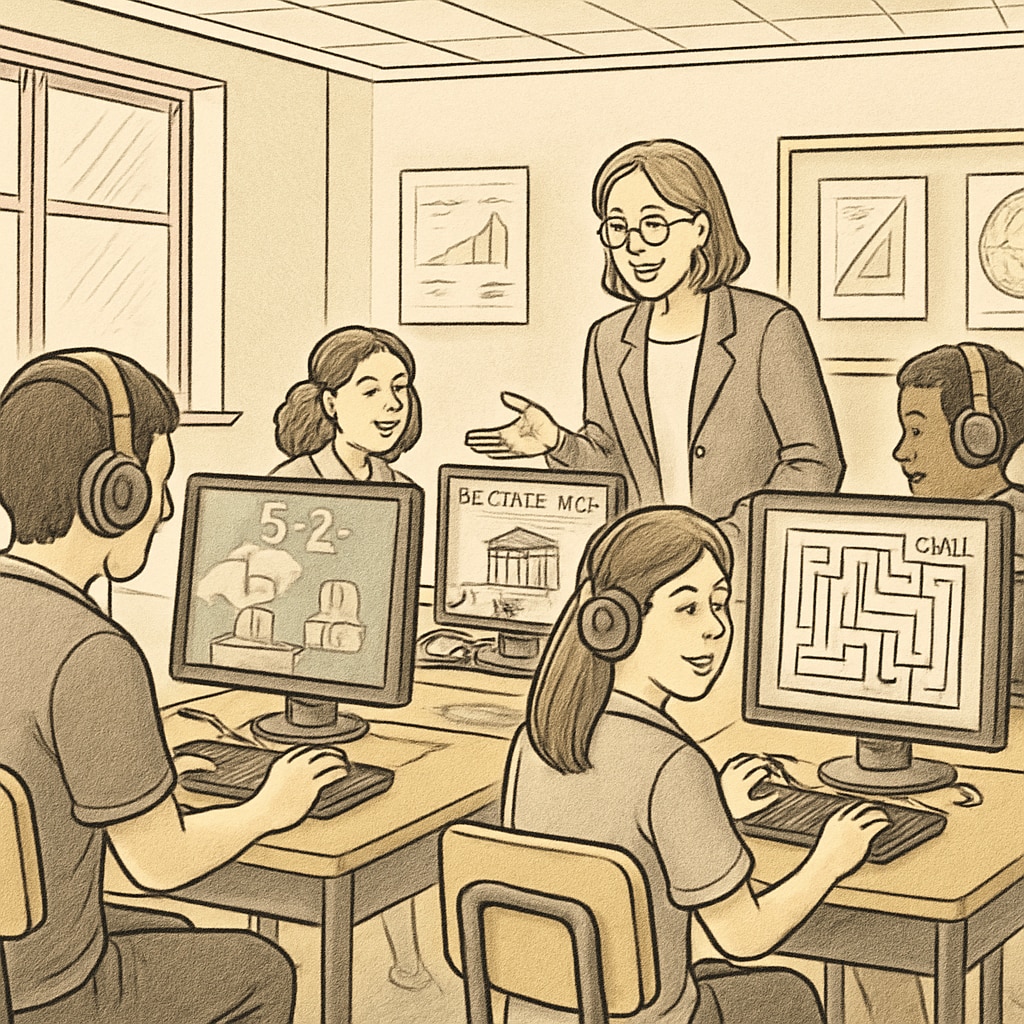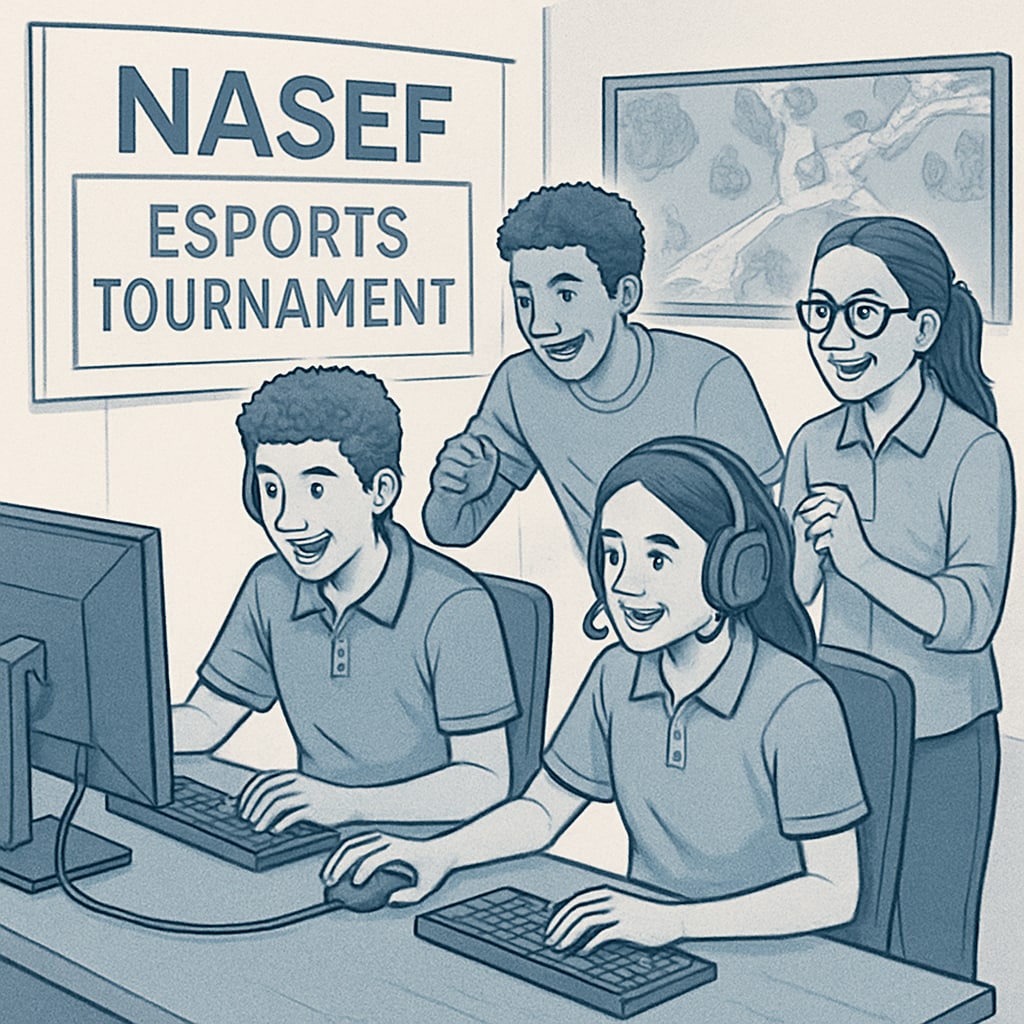The collaboration between GameClass and NASEF marks a groundbreaking moment in education, introducing game-based learning through esports into K12 classrooms worldwide. This strategic partnership leverages NASEF’s global network of esports clubs and GameClass’s innovative learning platforms to provide students with an engaging educational experience tailored to the digital age. By integrating gaming with core academic subjects, this initiative is set to transform traditional learning methods and redefine how education connects with students today.
The Intersection of Esports and K12 Education
Esports (organized competitive video gaming) has rapidly grown into a global phenomenon, captivating millions of players and viewers. Recognizing its educational potential, GameClass and NASEF aim to harness the appeal of gaming to foster critical thinking, problem-solving, and collaboration among students. By embedding academic content within the framework of esports, educators now have a powerful tool to engage learners, especially in STEM (Science, Technology, Engineering, and Math) disciplines.
For example, math concepts like probability can be taught through in-game scenarios, while teamwork and communication skills are developed during competitive matches. This fusion of gaming and academics not only enhances subject mastery but also prepares students for future careers in esports, technology, and related industries.

The Role of GameClass and NASEF in Game-Based Learning
GameClass, known for its interactive and adaptive educational technology, brings a wealth of digital learning tools to this partnership. Their platform offers personalized learning experiences that adapt to students’ skill levels and learning paces, ensuring academic content is both accessible and challenging. Coupled with NASEF’s extensive network of esports clubs, this collaboration enables schools worldwide to implement game-based learning programs effectively.
NASEF, or the North America Scholastic Esports Federation, has long been a pioneer in incorporating esports into education. With a mission to use gaming as a gateway to academic and career success, NASEF organizes tournaments, provides curriculum resources, and supports educators in leveraging esports for learning. Together, GameClass and NASEF are creating a holistic ecosystem where students can thrive academically, socially, and professionally.

Impact on Student Engagement and Learning Outcomes
Research consistently shows that active engagement is key to effective learning. Game-based learning, particularly through esports, appeals to students’ interests while fostering a sense of achievement and motivation. According to a study published by the American Educational Research Journal, students engaged in interactive and gamified learning environments demonstrate higher retention rates and improved comprehension compared to traditional methods.
In addition to academic benefits, the esports-education model nurtures essential 21st-century skills such as:
- Collaboration: Team-based games teach students how to work cohesively toward shared goals.
- Critical Thinking: Strategy-based games require quick decision-making and adaptability.
- Digital Literacy: Exposure to gaming technology enhances familiarity with digital tools and platforms.
- Leadership: Students often assume leadership roles within their teams, promoting responsibility and initiative.
As a result, this approach not only enriches academic performance but also equips students with valuable life skills essential for the modern workforce.
Challenges and the Path Forward
While the benefits are clear, integrating esports into education is not without challenges. Schools must address concerns such as screen time, access to technology, and misconceptions about gaming’s role in learning. Additionally, educators require proper training to effectively implement game-based curriculums.
However, partnerships like that of GameClass and NASEF are paving the way forward. By providing comprehensive resources, training programs, and a supportive community, these organizations are breaking down barriers and promoting the adoption of esports in education. As more schools embrace this innovative approach, we can expect to see a significant shift in global educational practices.
In conclusion, GameClass and NASEF are at the forefront of an educational revolution. By blending the excitement of esports with the rigor of academics, they are not only enhancing student learning experiences but also shaping the future of K12 education. This groundbreaking initiative exemplifies how technology and education can work hand-in-hand to create a brighter, more engaging future for students worldwide.
Readability guidance: Key ideas are summarized in lists for clarity. Short paragraphs and transitional phrases ensure the text remains accessible and engaging. Illustrative examples help contextualize the content for readers unfamiliar with esports or game-based learning.


